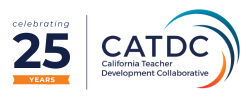The One Word We Need for a Great School Year

I love to drop in on classes for five to fifteen minutes. Most often I leave having observed something about how a student learns or the way a teacher teaches. Occasionally, however, I learn something that makes me have the proverbial, “aha!” moment. That just happened. After leaving a fifth grade humanities class, I immediately sent the two teachers a thank you and sat down to write this.
As I walked in the room the students were watching a video of a dog trying, unsuccessfully, to carry a large stick across a narrow bridge. Cute, without a doubt. The students described what they saw as the dog persisted and, eventually, figured out how to carry the stick at an angle. The two teachers then connected this video clip to the word “yet.” The dog did not give up thinking, “I can’t do it” – if dogs think such things. Instead the adorable brown lab thought, “I can’t do it yet” and kept trying, eventually succeeding.
“Yet,” we learned (I was absolutely now a student), is the suffix of a growth mindset. Someone with a growth mindset believes that intelligence is not a fixed trait and that effort can make someone smarter. While the fixed mindset says, “I can’t do it,” the growth mindset says, “I can’t do it, yet.” Our fifth grade humanities students went on to talk about how they can improve in humanities through effort, the fundamental tenet of the growth mindset. I began thinking of ways that I can improve my school leadership through effort.
The real gem of the class, though, was the insight shared by one of the students. When asked what the person filming the dog was doing, one student said, “She is teaching the dog.” Indeed, had that person put down the camera and carried the stick across the bridge, the dog would not have learned. The dog might have forever thought, “I can’t do it.” Instead, camera in hand, that person allowed the dog to learn, to realize the power of yet.
While I have read Carol Dweck’s Mindset and even taught her Brainology curriculum (Dweck is the originator of the growth mindset), I learned three new things about the growth mindset in just five minutes of 5th grade humanities:
- Simply adding the word “yet” can help shift us from fixed mindset to growth mindset.
- It is the job of a teacher to teach the growth mindset and, more importantly, allow a student the time to realize her or his own “yet.”
- It is the job of a school leader to similarly allow teachers and staff to realize their own “yet” while themselves, as leaders, modeling growth through effort.
That was a good five minutes of class! Now I have to go work on my yet.
Andrew Davis is the Head of School at Mt. Tamalpais School in Mill Valley. He served as a Head of Middle School and Director of Admissions at Crystal Springs Uplands School before assuming his present responsibilities. His teaching career includes three years as a middle school history teacher at the Hamlin School.
